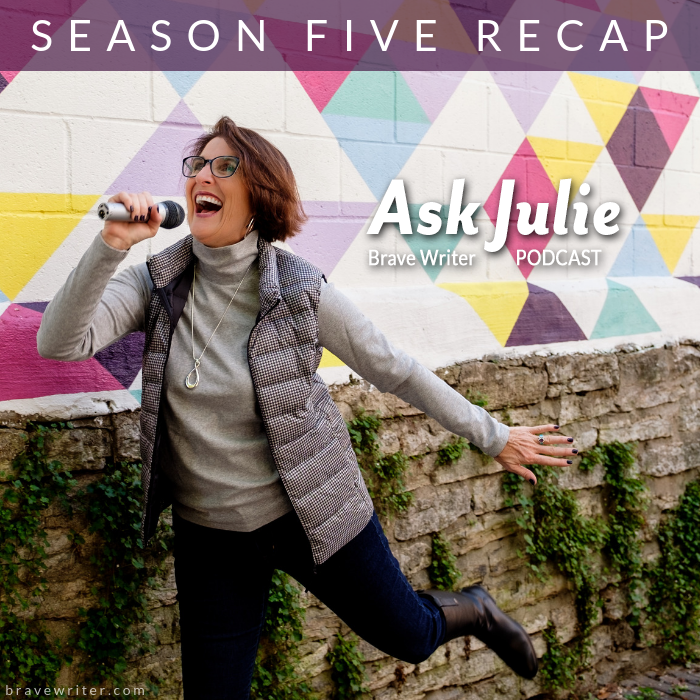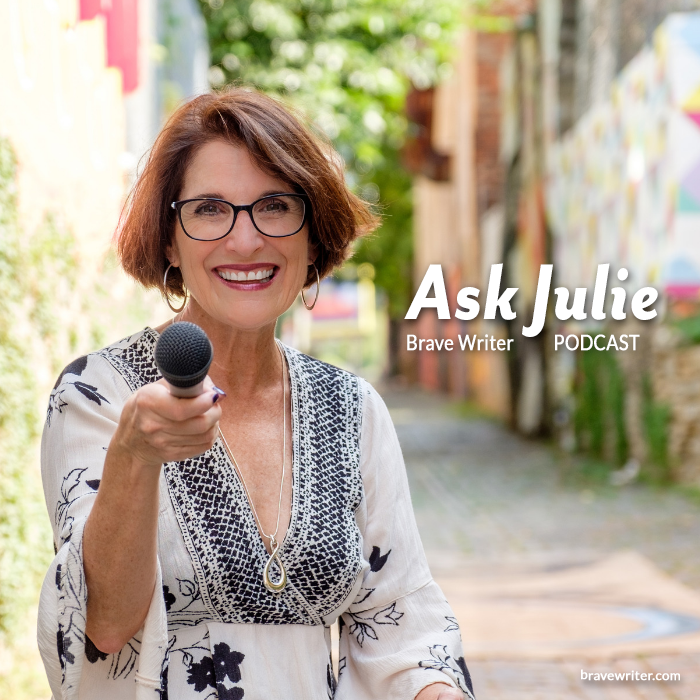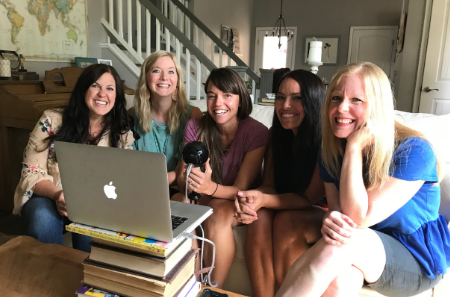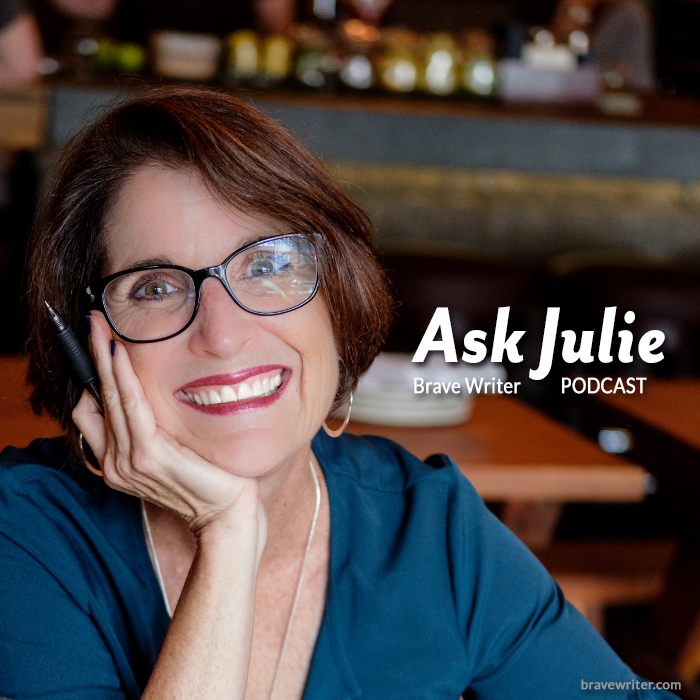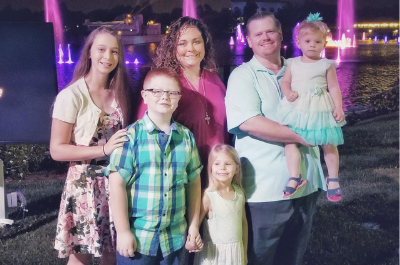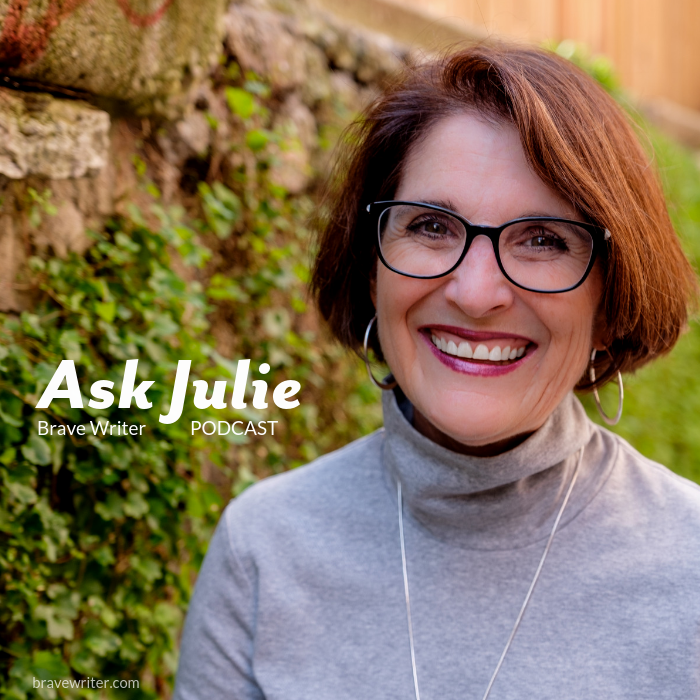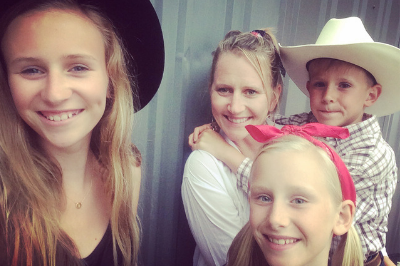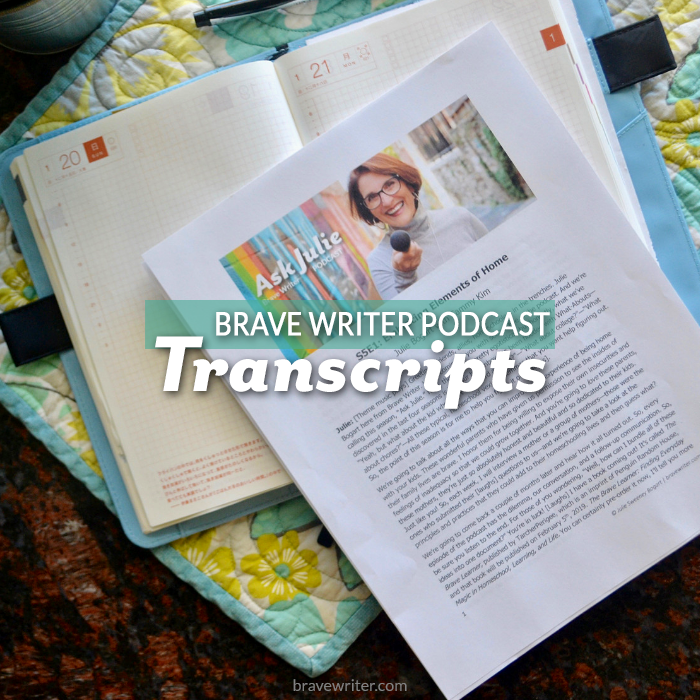
The podcast transcripts are all here! You asked for them, we promised, and now we’re delivering. 📬
We’ve been including them one by one on the Brave Writer blog and now you can enjoy ALL of the transcripts for the Ask Julie podcasts.
Print them out, highlight the parts you like, make notes in the margins—or stash them in a folder for the next time you need a pop of inspiration.
Transcripts for the Season Five podcasts:
S5E1: Embracing Elements of Home with Tammy Kim
[Download Transcript]
S5E2: Growing a Mind & Cultivating Curiosity with Christa Gregg
[Download Transcript]
S5E3: What About Technology? with Lindsay McCarthy
[Download Transcript]
S5E4: Checklist Lovers – Planning From Behind with Jennifer Vetter
[Download Transcript]
S5E5: When Learning Isn’t Fun with Anne Trott
[Download Transcript]
S5E6: Community is Self-Care with Jennifer Hunter
[Download Transcript]
S5E7: Finding a Balance in High School with Karen Goldstein
[Download Transcript]
S5E8: Cultivating Connection in a Large Family with Jardel Manalo
[Download Transcript]
S5E9: Awesome Adulting with Jessica Hammond
[Download Transcript]
S5E10: Prepping Your Teen for Adulthood with Myah St. John
[Download Transcript]
S5E11: Breaking Free from Multitasking with Courtney Moyer
[Download Transcript]
S5E12: Routines, Chaos, and Big Goals—Oh My! with CO Springs Homeschool Mamas Group
[Download Transcript]
The Brave Writer podcast is available on Apple Podcasts, our blog, and any other podcast providing server like Stitcher.
If you’re new to the podcast, listen to previous episodes here.


